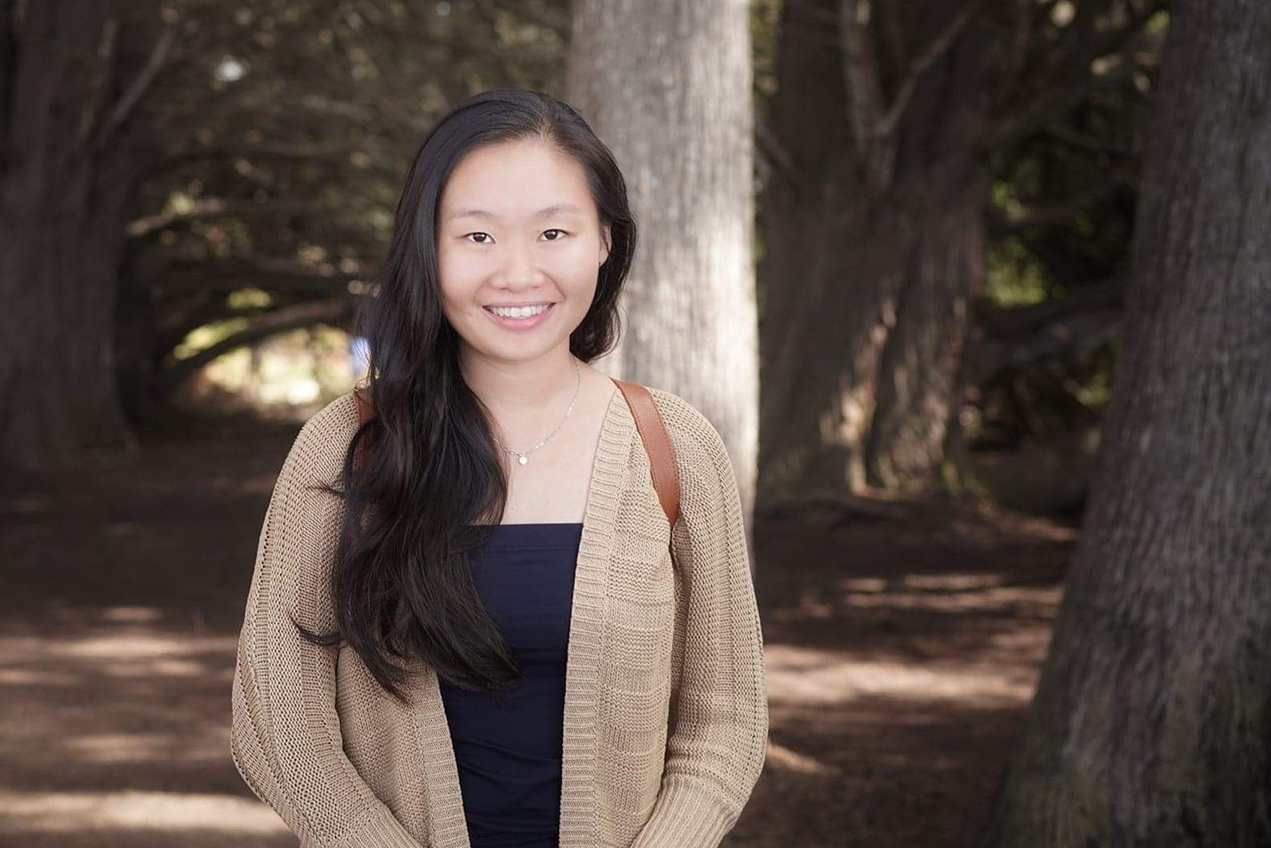As a child in Vietnam, Tracy Tran helped her family run a small business importing porcelain products from China and assumed she would follow in their footsteps. Neither of her parents had a college degree and they worked very hard to support Tran and her sister. Once her parents finally had the resources, they used their life savings to send their two daughters to the U.S. to pursue better educational opportunities. When Tran left home at 18 years old to pursue her bachelor’s degree, the possibility of a career in science had never crossed her mind.
It was a microbiology lab course at Santa Ana College that made Tran realize that she loved working with her hands, asking questions, making observations and drawing conclusions. Her instructor encouraged her to give research a try and she applied for summer research programs for minority students.
After completing her associate’s degrees in chemistry and biological sciences, Tran served as an HHMI Summer Research Scholar at California State University, Fullerton, where she was first exposed to the field of scientific research. Tran credits this program as being the experience responsible for establishing the crucial groundwork for her academic career.
“That was where I learned my very first lessons about research and critical thinking, and research has been a vital part of me since then,” she said.
In 2011, Tran transferred to CSU Long Beach, where she majored in microbiology and volunteered in a virology lab for two years.
“During my undergrad, my mentors laid the very first foundation of what it means to do an experiment and to answer scientific questions. Although the research did not use animal models and may not have implications in human diseases, it was definitely a lot of learning,” she said.
The following summer, Tran completed a cancer research internship at Charles Drew University, and decided to pursue her PhD at USC in 2014.
“I joined a graduate program thinking that I would cure cancer, just like a lot of graduate students,” she said. “But when I joined USC, I was encouraged to rotate in very different environments, because of the nature of the program.”
Tran completed one of her three rotations in the USC Stem Cell laboratory of Andy McMahon. She became captivated by developmental biology, which she viewed as the foundation for progress in other fields, such as genetics, cancer biology, and bioengineering.
“We scientists play God: we knock out genes, and we don’t see wings, for example, hence the Wingless mutation,” she said. “That was extremely fascinating to me.”
During her rotation, she felt challenged every single day. When she was learning the ropes, she thought to herself, “How am I going to balance learning the literature and working on experiments at the same time?”
While she was daunted at first, the high expectations in the lab became a driving force for her to learn and do more.
Tran has also found it helpful that McMahon meets with each member of the lab for half an hour every week to ensure that experiments are on track. McMahon’s mentorship has allowed Tran to deepen and enhance her scientific reasoning skills, expand her scientific repertoire and excel in the field with confidence.
“I’ve been very fortunate to be able to get that from his training: every single statement you put in your paper has to be backed up by a solid experiment and research behind that,” she said.
Nils Lindstrom, PhD, who joined as a postdoctoral trainee in the McMahon Lab and is now an assistant professor of stem cell biology and regenerative medicine at USC, had a great impact on what Tran did for her PhD as well.
“He was there to check my sanity and make sure I was not going too crazy with my experiments,” she said, laughing.
As a PhD student in the McMahon Lab, Tran focused on studying and comparing the features of human and mouse kidney development. She then applied her knowledge to build rudimentary human kidney-like structures, known as organoids. She is now using these kidney organoids, which are derived from human embryonic stem cells, to study development and disease.
After Tran completes her PhD defense in April, she plans to head to UCLA to do research about X-chromosome inactivation. Her long-term goal is to stay in academia and start a research lab of her own.
Reflecting on her PhD journey, Tran is proud of her scientific and personal growth, and hopes that her work inspires more students from underrepresented groups to consider research careers.
“There are not many Vietnamese last names that you see on [research] papers,” Tran said. “It’s a great thing to note that I may be able to have my authorship on important papers, and that the first author would have a Vietnamese last name.”
As the first author of a paper published in Developmental Cell in 2019, co-first author of papers published in Developmental Cell and the Journal of the American Society of Nephrology in 2018, and the co-author of five other recent papers from the McMahon Lab, she is achieving just that.
— Angelina Girgis


